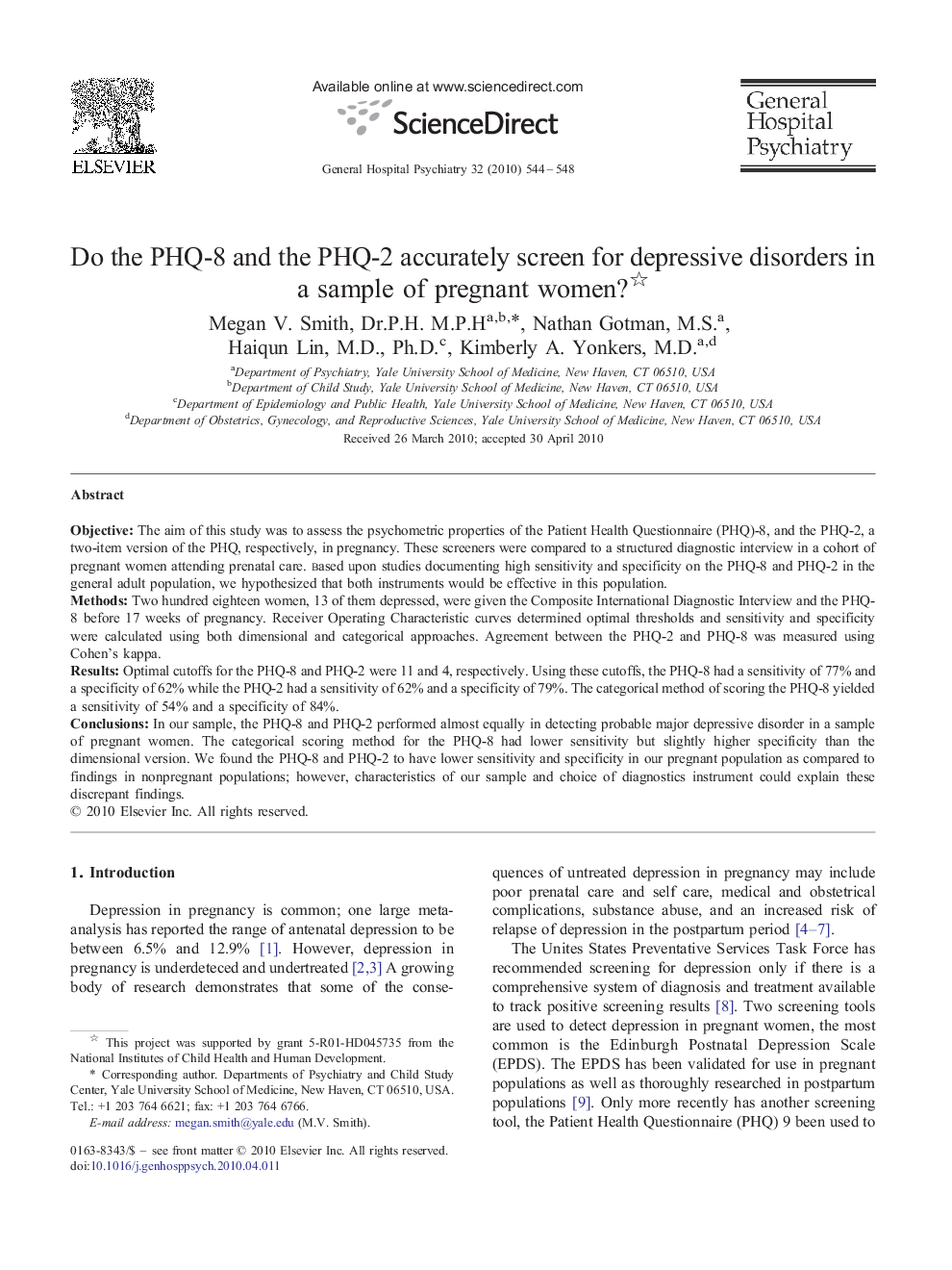| کد مقاله | کد نشریه | سال انتشار | مقاله انگلیسی | نسخه تمام متن |
|---|---|---|---|---|
| 3237957 | 1205698 | 2010 | 5 صفحه PDF | دانلود رایگان |

ObjectiveThe aim of this study was to assess the psychometric properties of the Patient Health Questionnaire (PHQ)-8, and the PHQ-2, a two-item version of the PHQ, respectively, in pregnancy. These screeners were compared to a structured diagnostic interview in a cohort of pregnant women attending prenatal care. Based upon studies documenting high sensitivity and specificity on the PHQ-8 and PHQ-2 in the general adult population, we hypothesized that both instruments would be effective in this population.MethodsTwo hundred eighteen women, 13 of them depressed, were given the Composite International Diagnostic Interview and the PHQ-8 before 17 weeks of pregnancy. Receiver Operating Characteristic curves determined optimal thresholds and sensitivity and specificity were calculated using both dimensional and categorical approaches. Agreement between the PHQ-2 and PHQ-8 was measured using Cohen's kappa.ResultsOptimal cutoffs for the PHQ-8 and PHQ-2 were 11 and 4, respectively. Using these cutoffs, the PHQ-8 had a sensitivity of 77% and a specificity of 62% while the PHQ-2 had a sensitivity of 62% and a specificity of 79%. The categorical method of scoring the PHQ-8 yielded a sensitivity of 54% and a specificity of 84%.ConclusionsIn our sample, the PHQ-8 and PHQ-2 performed almost equally in detecting probable major depressive disorder in a sample of pregnant women. The categorical scoring method for the PHQ-8 had lower sensitivity but slightly higher specificity than the dimensional version. We found the PHQ-8 and PHQ-2 to have lower sensitivity and specificity in our pregnant population as compared to findings in nonpregnant populations; however, characteristics of our sample and choice of diagnostics instrument could explain these discrepant findings.
Journal: General Hospital Psychiatry - Volume 32, Issue 5, September–October 2010, Pages 544–548